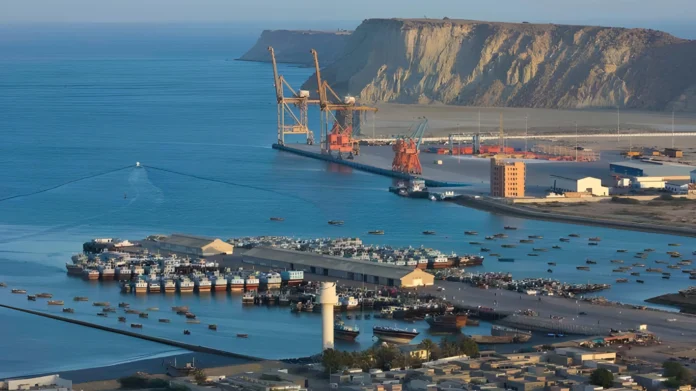China is taking significant steps to strengthen Pakistan’s control over Balochistan, aiming to quash the Baloch movement and pave the way for a military base in Gwadar.
This strategic move comes as part of China’s broader ambitions in the region, notably with the impending launch of the China-Pakistan Economic Corridor (CPEC) Phase 2.
To ensure the success of this initiative, China is exerting pressure on Pakistan to suppress the Baloch movement, which has long resisted external domination and advocated for greater autonomy.
China’s involvement in Balochistan’s internal affairs is not a recent development. However, the intensity and scale of its actions have escalated, raising serious concerns about human rights violations.
Reports indicate that China is complicit in Pakistan’s aggressive tactics, which include enforced disappearances, extrajudicial killings, and severe repression of dissent within the Baloch community.
These measures are intended to silence opposition and facilitate the unimpeded progress of CPEC projects.
The strategic significance of Gwadar cannot be overstated. Situated on the Arabian Sea, Gwadar is poised to become a critical hub for trade and military operations, enhancing China’s influence in the Indian Ocean region.
The development of a military base in Gwadar would not only secure China’s economic interests but also bolster its geopolitical presence, allowing for greater control over vital maritime routes.
CPEC, a flagship project under China’s Belt and Road Initiative, aims to connect Gwadar Port to China’s Xinjiang region through a network of roads, railways, and pipelines.
The success of this corridor is crucial for China’s economic and strategic goals.
However, the Baloch insurgency poses a significant threat to the stability and security of the region, potentially jeopardizing the entire project.
In response to this threat, China has reportedly increased its military and financial support to Pakistan.
This support includes advanced surveillance technology and counter-insurgency training, aimed at enhancing Pakistan’s capability to crush the Baloch resistance.
Furthermore, Chinese companies involved in CPEC projects are allegedly providing intelligence and logistical assistance to Pakistani forces operating in Balochistan.
Human rights organizations and international observers have condemned the ongoing atrocities in Balochistan, calling for greater accountability and protection of the Baloch people.
Despite these calls, the situation on the ground remains dire, with limited access to independent media and humanitarian agencies.
The Baloch community continues to suffer from a climate of fear and oppression, with little hope for redress.
The partnership between China and Pakistan in Balochistan reflects a broader trend of geopolitical maneuvering in South Asia.
As China seeks to expand its influence through strategic investments and military alliances, the local populations often bear the brunt of these ambitions.
The case of Balochistan underscores the need for a balanced approach that respects the rights and aspirations of indigenous communities while pursuing economic development and regional stability.
In conclusion, China’s efforts to reinforce Pakistan’s control over Balochistan, to establish a military base in Gwadar, highlight the complex interplay of economic and strategic interests in the region.
While the success of CPEC Phase 2 is a priority for China, it should not come at the cost of human rights and the well-being of the Baloch people.
A sustainable and peaceful resolution requires genuine dialogue and respect for the autonomy and dignity of all stakeholders involved.




